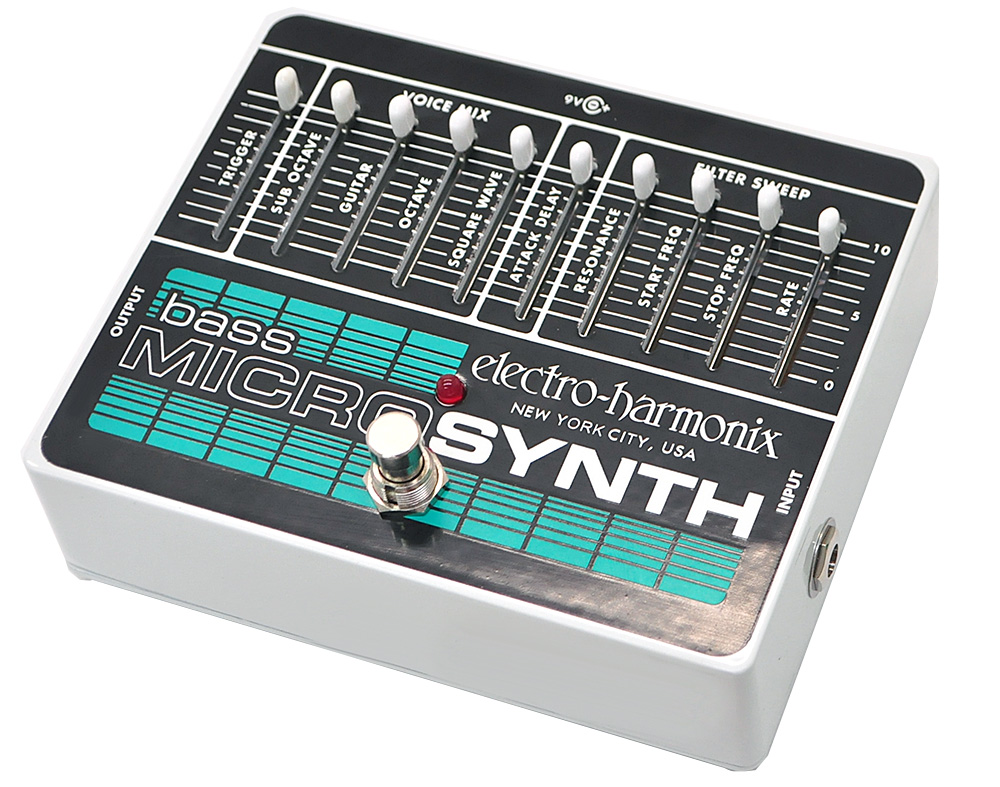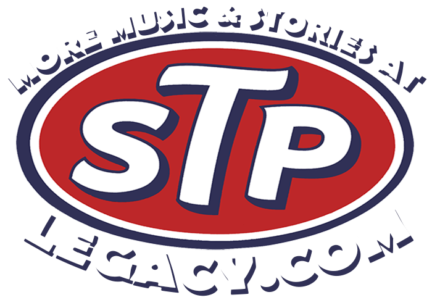Shortly after celebrating the 25th anniversary of their 1992 debut, Core—and after announcing the search for a singer that brought in more than 15,000 demos—Stone Temple Pilots went silent. The band had coped with the deaths of both original singer Scott Weiland in 2015 and his replacement, Linkin Park’s Chester Bennington, in 2017, and STP fans were uncertain whether the alternative rockers had simply given up. That changed, however, when cryptic messages began surfacing online, eventually revealing a surprise show in Los Angeles for a lucky batch of fans. It appeared that Stone Temple Pilots’ hunt was over, and that they’d finally found their singer.
On November 14, 2017, fans packed the historic Troubadour in West Hollywood, surrounding the stage in anticipation. As the band finally walked out and kicked into “Down,” new singer Jeff Gutt—trim and confident, with a booming voice and spiky blond hair—wore a nametag that said hi, my name is … jeff. He grabbed the mic in a way that reminded everyone present of Weiland, conjuring instant flashbacks to the band’s ’90s heyday. Guitarist Dean DeLeo, drummer Eric Kretz, and the band’s heart and soul, Robert DeLeo, ripped through the set, playing every STP classic from “Interstate Love Song” and “Vasoline” to “Plush” and “Big Empty.” While much of the attention was on Gutt, it was impossible to ignore Robert’s impeccable execution of his soulful lines, given all the more impact by his charismatic stage presence, his trademark for the past 32 years.
The following day, the band announced it was getting ready to release a new self-titled album produced by Robert and Dean, which had been completed at Robert’s HOMeFRY studio earlier in the year. The 12-song disc showcases the DeLeo brothers’ pedigree as songwriters—but the real magic lies in the bass work of Robert, who takes the lead on tracks like “The Art of Letting Go,” “Roll Me Under,” and “Good Shoes.” The studio signal-path formula he’s perfected over the years sounds better than ever: His mids cut through powerfully, while his lows fall perfectly between Eric’s kick drum and Dean’s guitar melodies. Robert even links up with Gutt’s vocal lines in the chorus of the first single, “Meadow,” which also features the added ear candy of an unexpected bass solo.
At age 52, Robert DeLeo has spent the past several years in high demand, collaborating with the Doors, Joe Perry, Hollywood Vampires, Jeff Beck, Billy Gibbons, Johnny Depp, Kings Of Chaos, Delta Deep, and a slew of others. DeLeo’s longstanding love affair with music, and his fanaticism about songwriting and songwriters, have driven and sculpted him since he was a boy listening to Motown and Stan Getz’s samba compositions on the AM radio. Robert’s musical DNA contains a broad mix of genres that has only gotten more expansive over the years, and he’s feeling more inspired to write than he has in a long time. Now, for STP’s third chapter, he has all the right elements to do it with.
ROBERT DeLEO
Poco después de celebrar el 25 aniversario de CORE en su debut de 1992 y después de anunciar la búsqueda de un cantante que trajo más de 15,000 demos, Stone Temple Pilots guardó silencio. La banda había lidiado con la muerte del cantante original Scott Weiland en 2015, su reemplazo Chester Bennington de Linkin Park en 2017 y los fanáticos de STP no estaban seguros de si los rockeros alternativos simplemente se habían rendido. Sin embargo, eso cambió cuando los mensajes comenzaron a aparecer en línea, finalmente revelaron un espectáculo sorpresa en Los Ángeles para un grupo afortunado de fanáticos. Parecía que la caza de Stone Temple Pilots había terminado, y que finalmente habían encontrado a su cantante.
El 14 de noviembre de 2017, los fanáticos llenaron el histórico Troubadour en West Hollywood, rodeando el escenario con anticipación. Cuando la banda finalmente salió y tocó “DOWN”, el nuevo cantante Jeff Gutt, sereno y confiado, con una voz retumbante y cabello rubio puntiagudo, llevaba una etiqueta que decía hola, mi nombre es Jeff. Agarró el micrófono de una manera que recordaba a Weiland a todos los presentes, conjurando instantáneas del apogeo de los años 90 de la banda. El guitarrista Dean DeLeo, el baterista Eric Kretz, el corazón y el alma de la banda, Robert DeLeo recorrieron el set, tocando todos los clásicos de STP de “Interstate Love Song”, “Vasoline”, “Plush” y “Big Empty”. Aunque gran parte de la atención estaba en Gutt, era imposible ignorar la ejecución impecable de Robert de sus líneas conmovedoras, dado el mayor impacto por su presencia en el escenario carismático, su marca registrada durante los últimos 32 años.

Rig Line 6 Bass PODxt Pro, two Ampeg SVT 8×10 cabs, 1967 Ampeg B-15, 1971 Ampeg VT-22, 1971 Marshall 8×10
Pedals EHX Bass Micro Synth Strings D’Addario roundwounds (.050–.105)
Al día siguiente, la banda anunció que se estaba preparando para lanzar un nuevo álbum homónimo producido por Robert y Dean, que se había completado en el estudio HOMeFry de Robert a principios de año. El disco de 12 canciones muestra el pedigrí de los hermanos DeLeo como compositores, pero la verdadera magia está en el trabajo de bajo de Robert, que toma la delantera en temas como “The Art of Letting Go”, “Roll Me Under” y “Good Shoes”. La fórmula del sendero del estudio que ha perfeccionado a través de los años suena mejor que nunca: sus medios se cortan con fuerza, mientras que sus bajos caen perfectamente entre el bombo de Eric y las melodías de guitarra de Dean. Robert incluso se conecta con las líneas vocales de Gutt en el estribillo del primer sencillo “Meadow”, que también presenta el dulce añadido de un inesperado solo de bajo.
A los 52 años, Robert DeLeo ha pasado los últimos años en alta demanda, colaborando con The Doors, Joe Perry, Hollywood Vampires, Jeff Beck, Billy Gibbons, Johnny Depp, Kings Of Chaos, Delta Deep y muchos otros. La larga historia de amor de DeLeo con la música, y su fanatismo sobre la composición de canciones y los compositores, lo han conducido y esculpido desde que era un niño escuchando las composiciones de samba de Motown y Stan Getz en la radio AM. El ADN musical de Robert contiene una amplia mezcla de géneros que se ha vuelto más expansiva a lo largo de los años, y se siente más inspirado para escribir que en mucho tiempo. Ahora, para el tercer capítulo de STP, tiene todos los elementos correctos para hacerlo.
